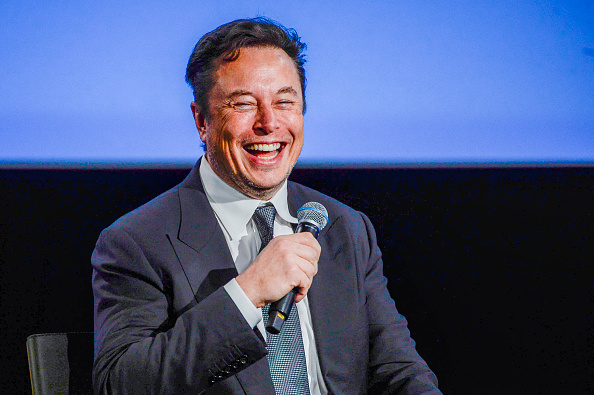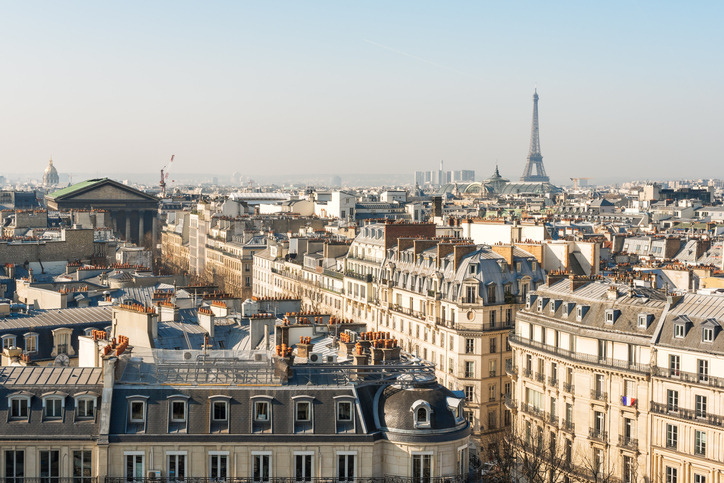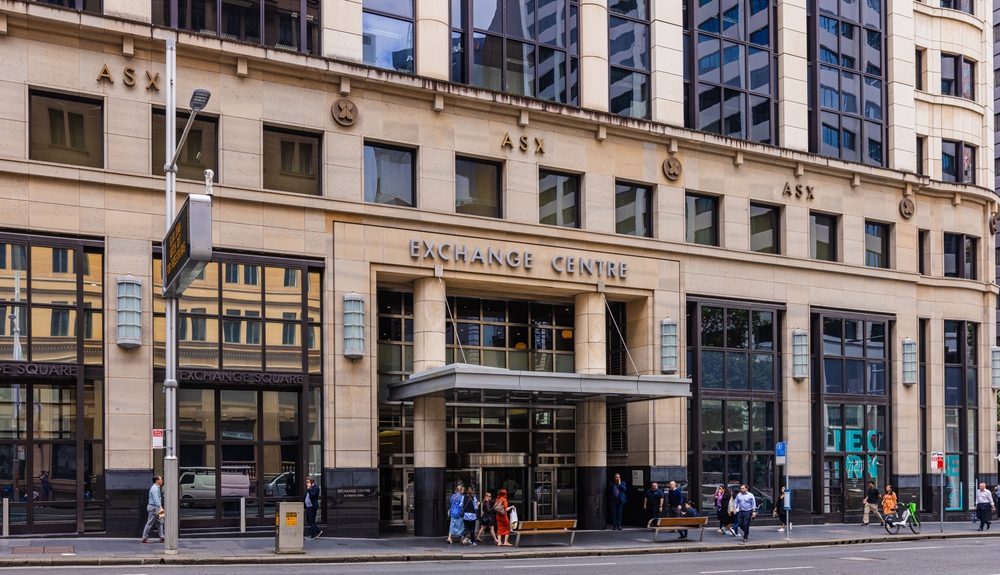Elon Musk Touts His Newest Venture: Perfume That Smells Like Burnt Hair
The world’s richest person is selling the ‘finest fragrance on Earth’ on Boring Co.’s website for $100 a bottle
Elon Musk is giving himself a new title: perfume pusher.
The Tesla Inc. chief executive announced on Twitter Tuesday night that he’s selling a $100 perfume that smells like burnt hair. Hours later, he tweeted that he sold 10,000 bottles, which would add up to $1 million in revenue.
The fragrance is currently being sold on Mr. Musk’s Boring Co.’s website, which describes the scent as, “The Essence of Repugnant Desire.” It shows a picture of a smoking red perfume bottle. The product isn’t expected to ship until early next year.
“With a name like mine, getting into the fragrance business was inevitable—why did I even fight it for so long!?,” Mr. Musk tweeted Tuesday night. He later added: “Can’t wait for media stories tomorrow about $1M of Burnt Hair sold,” a tweet which included a sideways laughing emoji.
He also changed his Twitter bio to “Perfume Salesman.”
Mr. Musk didn’t say how or where the perfume will be manufactured. Representatives for the Boring Co. and Tesla didn’t immediately respond to requests for comment on Mr. Musk’s endeavour.
Mr. Musk is the world’s wealthiest person and one of Twitter’s most prominent users with more than 100 million followers. He has been in a prolonged back-and-forth to potentially take over the platform, one that he has often used to make big pronouncements—some serious, some not. He once tweeted he was buying English soccer team Manchester United only to say hours later it was a joke.
In addition to Tesla, he runs rocket company SpaceX, formally known as Space Exploration Technologies Corp., and founded Boring Co., an underground tunnel business, and neuroscience startup Neuralink Corp.
Mr. Musk’s newest venture comes as he’s tackling several high-profile business and geopolitical issues. SpaceX ferried astronauts to the International Space Station last week just as Tesla’s stock price slumped sharply following the car company’s disappointing delivery figures.
He also stirred a political dust-up when he suggested that Crimea, an area previously part of Ukraine that Moscow annexed in 2014, rightfully is part of Russia. The comment drew pushback from Kyiv, including Ukraine’s President Volodymyr Zelensky.
And in the same week, he also disclosed that he planned to go forward with his $44 billion takeover of Twitter, a surprise about-face after almost three months of trying to abandon the deal.
“Please buy my perfume, so I can buy Twitter,” Mr. Musk said in a tweet Wednesday.
Mr. Musk’s companies have sold unrelated things before, including a Tesla tequila and a Boring Co. flamethrower.
Jonathan Preston said he bought two bottles of Burnt Hair Tuesday night, one to save and the other to sniff. He received an email after the purchase with the subject line, “You’re on fire!”
“Hey, hot stuff!,” the message said. “This email confirms your purchase of Burnt Hair by Singed. It’s going to be lit. We’ll let you know when it ships, expected Q1 2023.”
Mr. Preston, 41 years old, is used to waiting for Elon Musk-related goods. It took seven months for the Tesla electric car he ordered to arrive, and even longer to get home internet service from Mr. Musk’s satellite-internet business, Starlink.
Mr. Preston, who is semiretired and lives in Phillipsburg, Mo., said he bought the perfume as a gag and that it won’t replace his usual scent, a peppery Axe body spray.
“It better smell like burnt hair,” Mr. Preston said about Burnt Hair. “If it doesn’t, I may try to return it, just out of disappointment.”
Mr. Preston said he thinks the perfume will be made, and if not, he assumes he’ll get a refund.
Mr. Musk teased the perfume in September.
“‘Burnt Hair’—Scent for Men by Singed,” he tweeted. “Stand out in a crowd! Get noticed as you walk through the airport!”
 Copyright 2020, Dow Jones & Company, Inc. All Rights Reserved Worldwide. LEARN MORE
Copyright 2020, Dow Jones & Company, Inc. All Rights Reserved Worldwide. LEARN MORE
This stylish family home combines a classic palette and finishes with a flexible floorplan
Just 55 minutes from Sydney, make this your creative getaway located in the majestic Hawkesbury region.
As Paris makes its final preparations for the Olympic games, its residents are busy with their own—packing their suitcases, confirming their reservations, and getting out of town.
Worried about the hordes of crowds and overall chaos the Olympics could bring, Parisians are fleeing the city in droves and inundating resort cities around the country. Hotels and holiday rentals in some of France’s most popular vacation destinations—from the French Riviera in the south to the beaches of Normandy in the north—say they are expecting massive crowds this year in advance of the Olympics. The games will run from July 26-Aug. 1.
“It’s already a major holiday season for us, and beyond that, we have the Olympics,” says Stéphane Personeni, general manager of the Lily of the Valley hotel in Saint Tropez. “People began booking early this year.”
Personeni’s hotel typically has no issues filling its rooms each summer—by May of each year, the luxury hotel typically finds itself completely booked out for the months of July and August. But this year, the 53-room hotel began filling up for summer reservations in February.
“We told our regular guests that everything—hotels, apartments, villas—are going to be hard to find this summer,” Personeni says. His neighbours around Saint Tropez say they’re similarly booked up.
As of March, the online marketplace Gens de Confiance (“Trusted People”), saw a 50% increase in reservations from Parisians seeking vacation rentals outside the capital during the Olympics.
Already, August is a popular vacation time for the French. With a minimum of five weeks of vacation mandated by law, many decide to take the entire month off, renting out villas in beachside destinations for longer periods.
But beyond the typical August travel, the Olympics are having a real impact, says Bertille Marchal, a spokesperson for Gens de Confiance.
“We’ve seen nearly three times more reservations for the dates of the Olympics than the following two weeks,” Marchal says. “The increase is definitely linked to the Olympic Games.”

Getty Images
According to the site, the most sought-out vacation destinations are Morbihan and Loire-Atlantique, a seaside region in the northwest; le Var, a coastal area within the southeast of France along the Côte d’Azur; and the island of Corsica in the Mediterranean.
Meanwhile, the Olympics haven’t necessarily been a boon to foreign tourism in the country. Many tourists who might have otherwise come to France are avoiding it this year in favour of other European capitals. In Paris, demand for stays at high-end hotels has collapsed, with bookings down 50% in July compared to last year, according to UMIH Prestige, which represents hotels charging at least €800 ($865) a night for rooms.
Earlier this year, high-end restaurants and concierges said the Olympics might even be an opportunity to score a hard-get-seat at the city’s fine dining.
In the Occitanie region in southwest France, the overall number of reservations this summer hasn’t changed much from last year, says Vincent Gare, president of the regional tourism committee there.
“But looking further at the numbers, we do see an increase in the clientele coming from the Paris region,” Gare told Le Figaro, noting that the increase in reservations has fallen directly on the dates of the Olympic games.
Michel Barré, a retiree living in Paris’s Le Marais neighbourhood, is one of those opting for the beach rather than the opening ceremony. In January, he booked a stay in Normandy for two weeks.
“Even though it’s a major European capital, Paris is still a small city—it’s a massive effort to host all of these events,” Barré says. “The Olympics are going to be a mess.”
More than anything, he just wants some calm after an event-filled summer in Paris, which just before the Olympics experienced the drama of a snap election called by Macron.
“It’s been a hectic summer here,” he says.

AFP via Getty Images
Parisians—Barré included—feel that the city, by over-catering to its tourists, is driving out many residents.
Parts of the Seine—usually one of the most popular summertime hangout spots —have been closed off for weeks as the city installs bleachers and Olympics signage. In certain neighbourhoods, residents will need to scan a QR code with police to access their own apartments. And from the Olympics to Sept. 8, Paris is nearly doubling the price of transit tickets from €2.15 to €4 per ride.
The city’s clear willingness to capitalise on its tourists has motivated some residents to do the same. In March, the number of active Airbnb listings in Paris reached an all-time high as hosts rushed to list their apartments. Listings grew 40% from the same time last year, according to the company.
With their regular clients taking off, Parisian restaurants and merchants are complaining that business is down.
“Are there any Parisians left in Paris?” Alaine Fontaine, president of the restaurant industry association, told the radio station Franceinfo on Sunday. “For the last three weeks, there haven’t been any here.”
Still, for all the talk of those leaving, there are plenty who have decided to stick around.
Jay Swanson, an American expat and YouTuber, can’t imagine leaving during the Olympics—he secured his tickets to see ping pong and volleyball last year. He’s also less concerned about the crowds and road closures than others, having just put together a series of videos explaining how to navigate Paris during the games.
“It’s been 100 years since the Games came to Paris; when else will we get a chance to host the world like this?” Swanson says. “So many Parisians are leaving and tourism is down, so not only will it be quiet but the only people left will be here for a party.”
This stylish family home combines a classic palette and finishes with a flexible floorplan
Just 55 minutes from Sydney, make this your creative getaway located in the majestic Hawkesbury region.






















